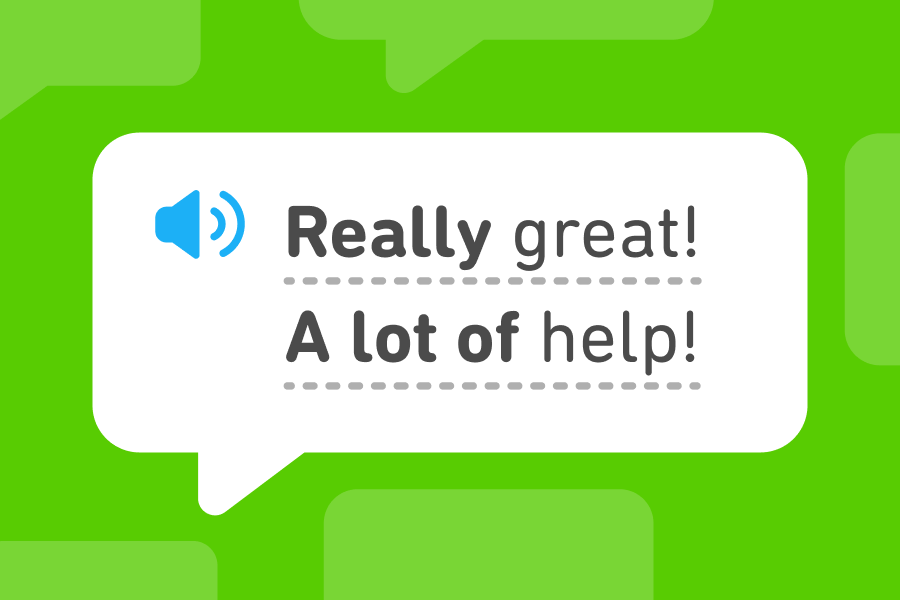Every language learner has been there: you’re trying to communicate an idea but suddenly get distracted by whether you’re using the right grammar. You pause, your listener awaits, but now you’re flustered 😖
But wait: You can simplify 🙌 There are tricks you can use to avoid complex structures when a simpler phrase will do.
Here are four ways to hack your English grammar and speak confidently right now!
Hack #1: right
English tag questions are definitely worth hacking. Tags are phrases like …don’t you? or …is it? that appear at the end of sentences to verify information. They’re both useful and common, but the rules are complex!
But there’s a workaround that allows you to make a tag question with very little effort: the wonderful word right. By adding right to the end of a sentence and pronouncing it like an English question, by raising your voice at the end, you can add a tag question to any affirmative statement:
Your sister is a doctor, right?
Zari likes romance novels, right?
They’ve been to Thailand before, right?
And unlike other English tag questions, you don’t need to worry about making …right? agree with the preceding verb: …right? is always right!
Hack #2: a lot of
Another challenge of English grammar is when to use much or many. For example, in English you say I didn’t buy much bread but I didn’t buy many things.
The difference is whether the noun (like bread or things) can be counted individually, but it takes practice to think of that on the spot, when you’re trying to speak at a natural pace! But that’s where Hack #2 comes in 👀 The phrase a lot of can be used with any type of noun, countable or not!
They didn’t ask a lot of questions.
Bea has a lot of work this week.
Did Junior eat a lot of chips?
Another bonus is that a lot of works in all structures, whether affirmative, negative, or questions. It can truly fit any role. (Think of it as the Meryl Streep of the grammatical world!)
Hack #3: please
English learners have to study many (*a lot of*) expressions for making friendly requests. At the coffee shop, you might say Can I get a large coffee, please? or Could you give me another napkin, please?
But it’s not always necessary to use complete structures in casual conversations. That’s why the third hack is the simple word please. Spoken with a smile, please can make shorter phrases sound polite:
Hi! A large coffee, please!
Another bag, please!
For more complicated requests, a longer phrase might be more appropriate, but in simpler cases, a pretty please is all you need.
Hack #4: really
English can be weird: We can say that a building is very big but not that it’s totally big. Likewise, we can say that a building is totally enormous, but we can’t say that it’s very enormous.
The reason for this is whether the adjective is about a “normal” quality (like big) or about an “extreme” quality (like enormous). That’s a subtle distinction when you are having a conversation in the language you’re learning. Hack #4 to the rescue!
When in doubt, go for the ever-correct adverb really. It works before all kinds of adjectives, and it pretty much always sounds natural:
That’s a really big building.
Wow, that building is really enormous!
Vikram’s sandwich looks really good.
Oscar’s pasta looks really amazing!
Hack your way to English proficiency!
If your goal is to feel really comfortable with a lot of English grammar points, try out these hacks to help your conversation flow!
